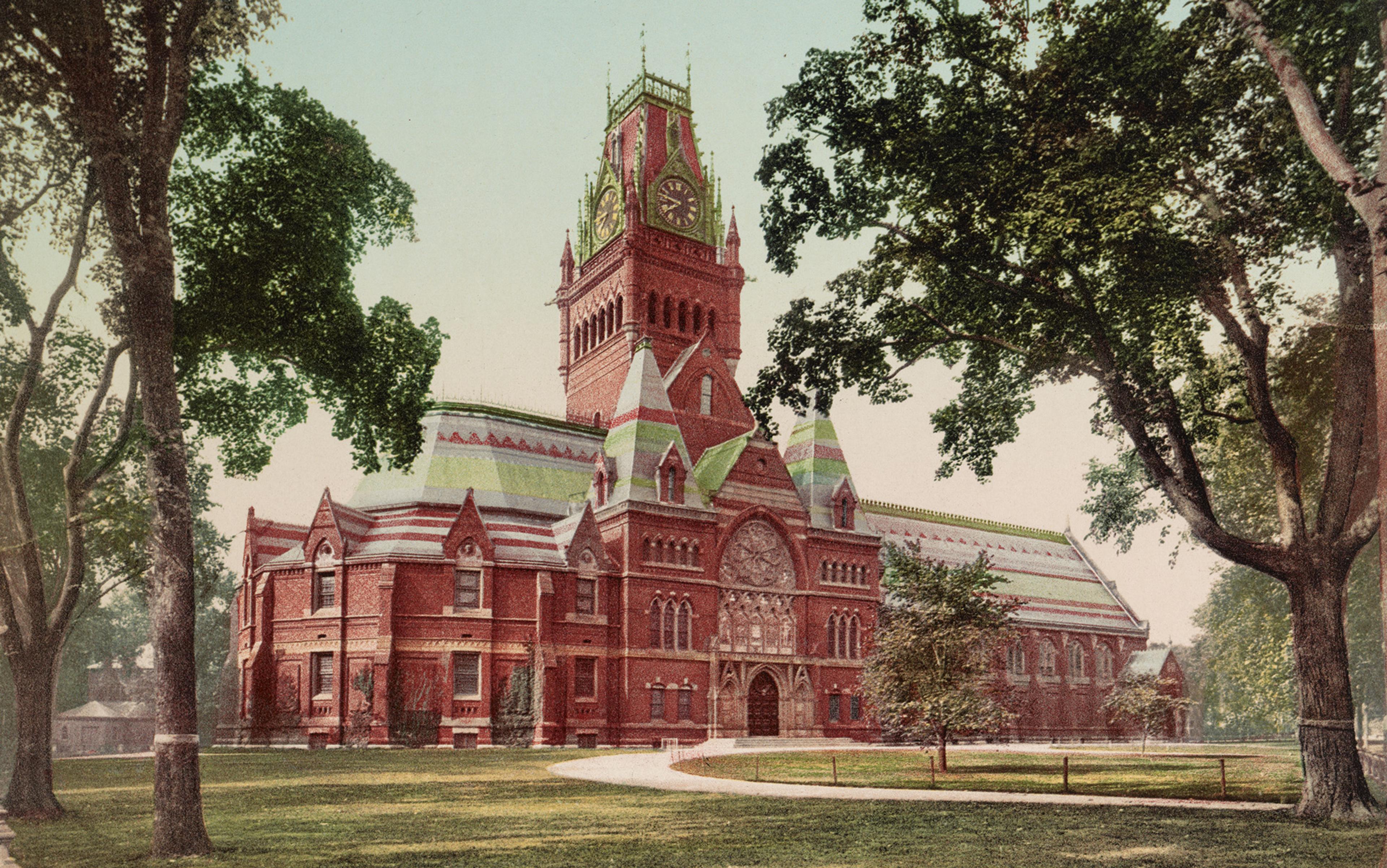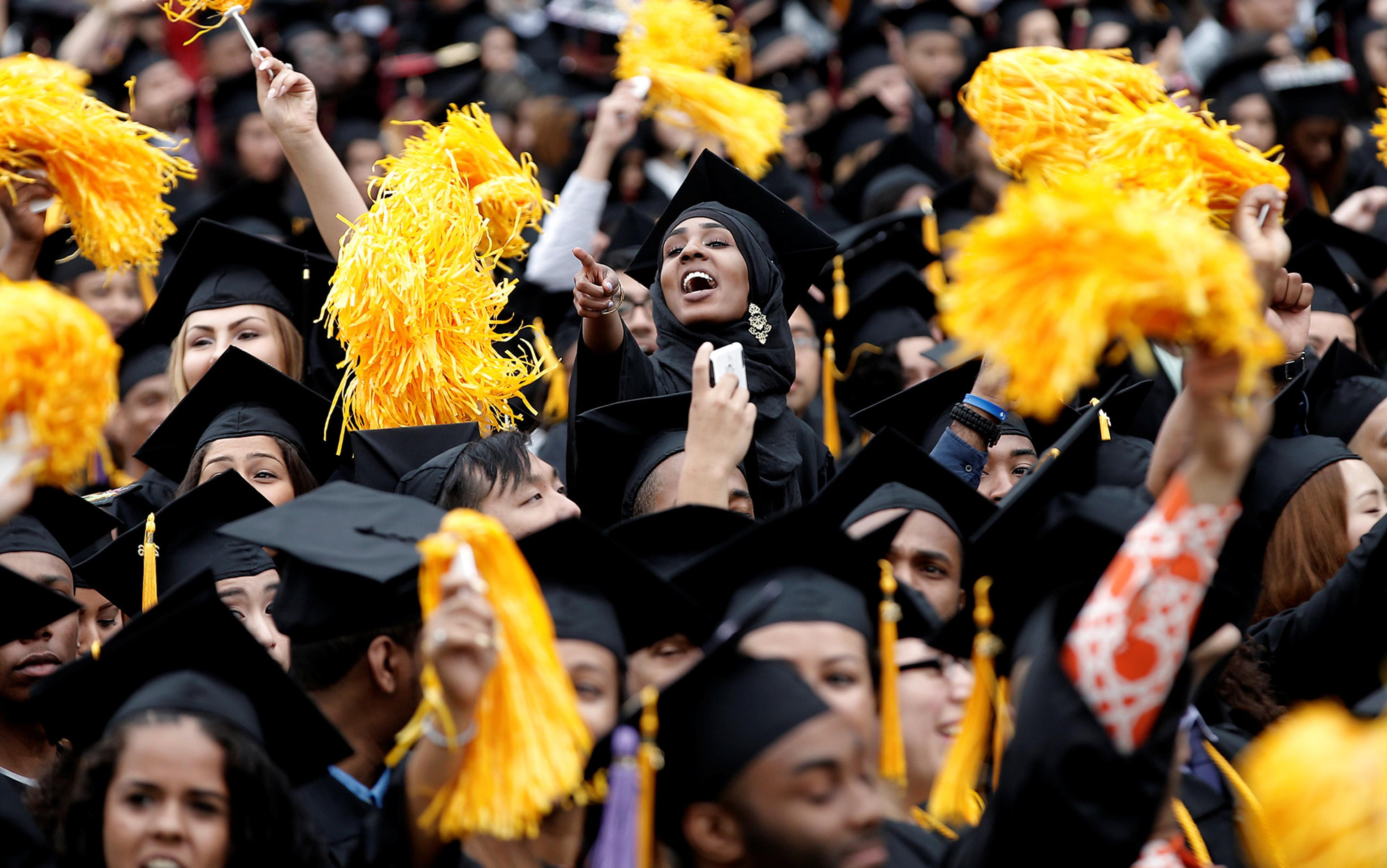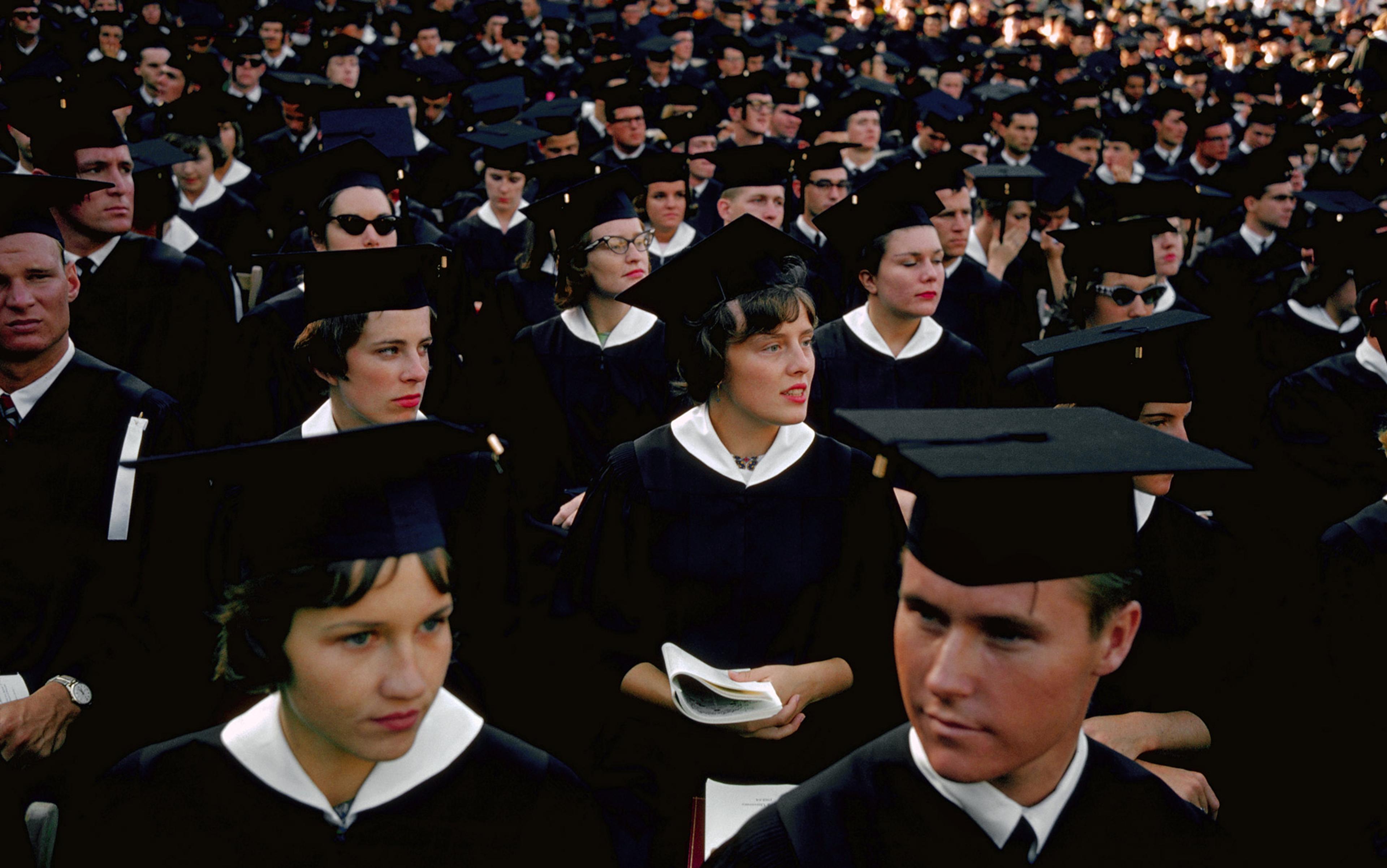Occupants of the American meritocracy are accustomed to telling stirring stories about their lives. The standard one is a comforting tale about grit in the face of adversity – overcoming obstacles, honing skills, working hard – which then inevitably affords entry to the Promised Land. Once you have established yourself in the upper reaches of the occupational pyramid, this story of virtue rewarded rolls easily off the tongue. It makes you feel good (I got what I deserved) and it reassures others (the system really works).
But you can also tell a different story, which is more about luck than pluck, and whose driving forces are less your own skill and motivation, and more the happy circumstances you emerged from and the accommodating structure you traversed.
As an example, here I’ll tell my own story about my career negotiating the hierarchy in the highly stratified system of higher education in the United States. I ended up in a cushy job as a professor at Stanford University. How did I get there? I tell the story both ways: one about pluck, the other about luck. One has the advantage of making me more comfortable. The other has the advantage of being more true.
I was born to a middle-class family and grew up in Philadelphia in the 1950s. As a skinny, shy kid who wasn’t good at sports, my early life revolved about being a good student. In upper elementary school, I became president of the student council and captain of the safety patrol (an office that conferred a cool red badge that I wore with pride). In high school, I continued to be the model student, eventually getting elected president of the student council (see a pattern here?) and graduating in 1965 near the top of my class. I was accepted at Harvard University with enough advanced-placement credits to skip freshman year (which, fortunately, I didn’t). There I majored in antiwar politics. Those were the days when an activist organisation such as Students for a Democratic Society was a big factor on campuses. I went to two of their annual conventions and wrote inflammatory screeds about Harvard’s elitism (who knew).
In 1970, I graduated with a degree in sociology and no job prospects. What do you do with a sociology degree, anyway? It didn’t help that the job market was in the doldrums. I eventually ended up back in Philadelphia with a job at the Federal Reserve Bank – first in public relations (leading school groups on tours) and then in bank relations (visiting banks around the Third Federal Reserve District). From student radical with a penchant for Marxist sociology, I suddenly became a banker wearing a suit every day and reading The Wall Street Journal. It got me out of the house and into my own apartment but it was not for me. Labarees don’t do finance.
After four years, I quit in disgust, briefly became a reporter at a suburban newspaper, hated that too, and then stumbled by accident into academic work. Looking for any old kind of work in the want ads in my old paper, I spotted an opening at Bucks County Community College, where I applied for three different positions – admissions officer, writing instructor, and sociology instructor. I got hired in the latter role, and the rest is history. I liked the work but realised that I needed a master’s degree to get a full-time job, so I entered the University of Pennsylvania sociology department. Once in the programme, I decided to continue on to get a PhD, supporting myself by teaching at the community college, Trenton State, and at Penn.
In 1981, as I was nearing the end of my dissertation, I started applying for faculty positions. Little did I know that the job market was lousy and that I would be continually applying for positions for the next four years.
As someone who started at the bottom, I can tell you that everything is better at the top
The first year yielded one job offer, at a place so depressing that I decided to stay in Philadelphia and continue teaching as an adjunct. That spring I got a one-year position in sociology at Georgetown University in Washington, DC. In the fall, with the clock ticking, I applied to 60 jobs around the country. This time, my search yielded four interviews, all tenure-track positions – at Yale University, at Georgetown, at the University of Cincinnati and at Widener University.
The only offer I got was the one I didn’t want, Widener – a small, non-selective private school in the Philadelphia suburbs that until the 1960s had been a military college. Three years past degree, I felt I had hit bottom in the meritocracy. The moment I got there, I started applying for jobs while desperately trying to write my way into a better one. I published a couple of journal articles and submitted a book proposal to Yale University Press. They hadn’t hired me but maybe they’d publish me.
Finally, a lifeline came my way. A colleague at the College of Education at Michigan State University encouraged me to apply for a position in history of education and I got the job. In the fall of 1985, I started as an assistant professor in the Department of Teacher Education at MSU. Fifteen years after college and four years after starting to look for faculty positions, my career in higher education finally took a big jump upward.
MSU was a wonderful place to work and to advance an academic career. I taught there for 18 years, moving through the ranks to full professor, and publishing three books and 20 articles and book chapters. Early on, I won two national awards for my first book and a university teaching award, and was later elected president of the History of Education Society and vice-president of the American Educational Research Association.
Then in 2002 came an opportunity to apply for a position in education at one of the world’s great universities, Stanford. It worked out, and I started there as a professor in 2003 in the School of Education, and stayed until retirement in 2018. I served in several administrative roles including associate dean, and was given an endowed chair. How cool.
As someone who started at the bottom of the hierarchy of US higher education, I can tell you that everything is better at the top. Everything: pay, teaching loads, intellectual culture, quality of faculty and students, physical surroundings, staff support, travel funds, perks. Even the weather is better. Making it in the meritocracy is as good as it gets. No matter how hard things go at first, talent will win out. Virtue earns its reward. Life is fair.
Of course, there’s also another story, one that’s less heartening but more realistic. A story that’s more about luck than pluck, and that features structural circumstances more than heroic personal struggle. So let me now tell that version.
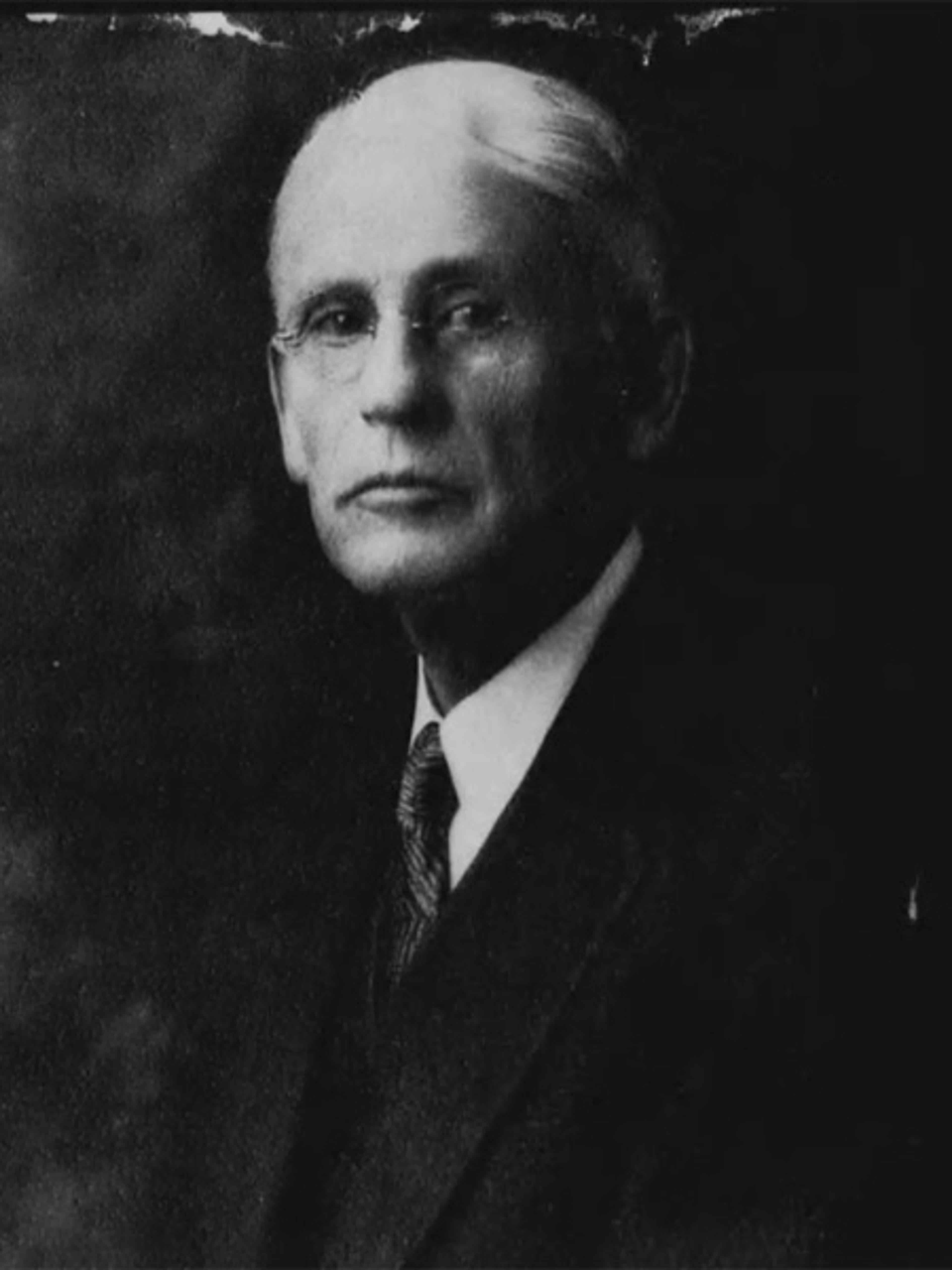
Professor Robert M Labaree of Lincoln University in southeast Pennsylvania, the author’s grandfather. Photo courtesy of the author
The short story is that I’m in the family business. In the 1920s, my parents grew up as next-door neighbours on a university campus where their fathers were both professors. It was Lincoln University, a historically black institution in southeast Pennsylvania near the Mason-Dixon line. The students were black, the faculty white – most of the latter, like my grandfathers, were clergymen. The students were well-off financially, coming from the black bourgeoisie, whereas the highly educated faculty lived in the genteel poverty of university housing. It was a kind of cultural missionary setting, but more comfortable than the foreign missions. One grandfather had served as a missionary in Iran, where my father was born; that was hardship duty. But here was a place where upper-middle-class whites could do good and do well at the same time.
Both grandfathers were Presbyterian ministers, each descended from long lines of Presbyterian ministers. The Presbyterian clergy developed a well-earned reputation over the years of having modest middle-class economic capital and large stores of social and cultural capital. Relatively poor in money, they were rich in social authority and higher learning. In this tradition, education is everything. In part because of that, some ended up in US higher education, where in the 19th century most of the faculty were clergy (because they were well-educated men and worked for peanuts). My grandfather’s grandfather, Benjamin Labaree, was president of Middlebury College in the 1840s and ’50s. Two of my father’s cousins were professors; my brother is a professor. It’s the family business.
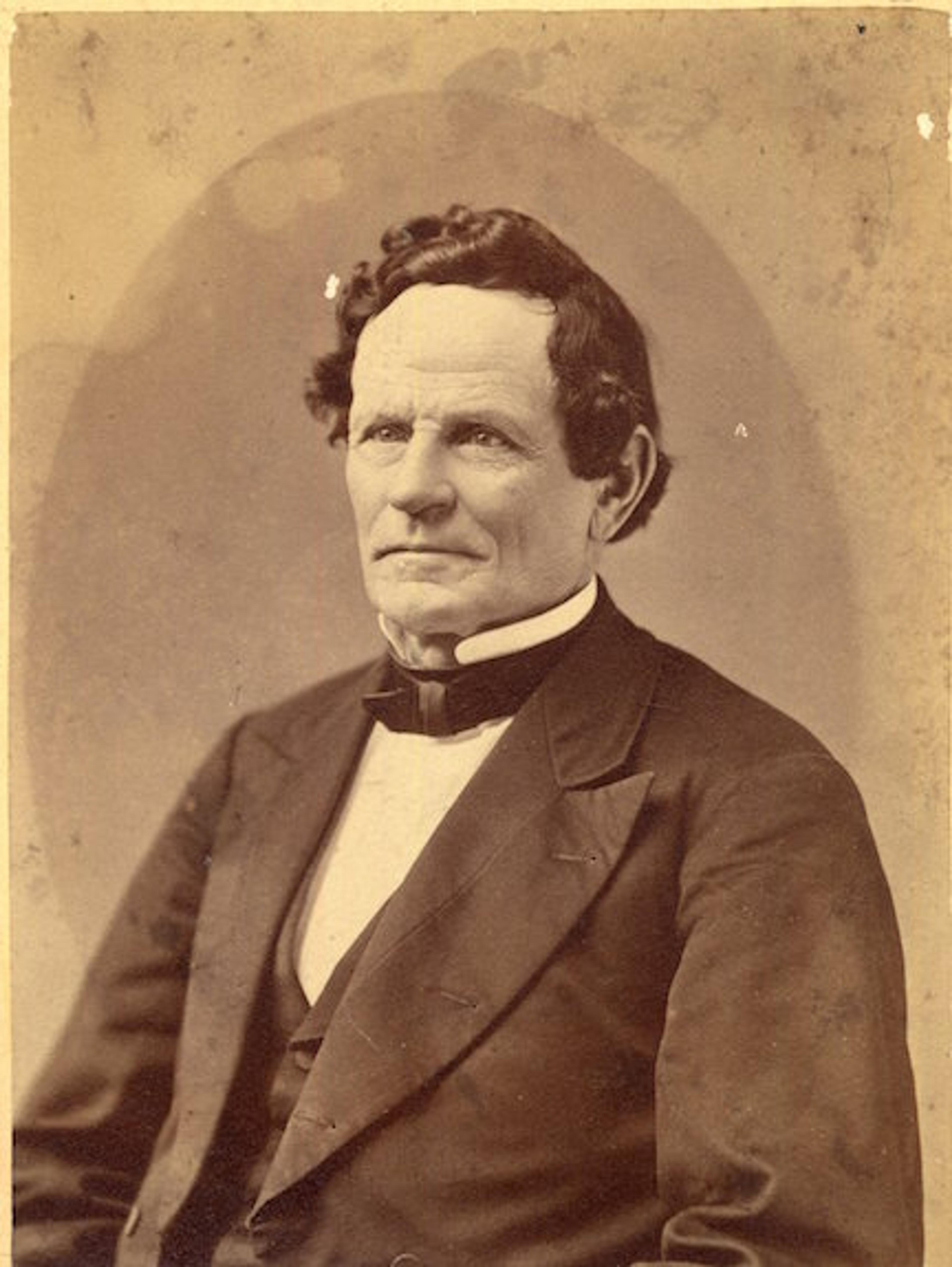
Rev Benjamin Labaree, who was president of Middlebury College, 1840-1866, and the author’s great-great-grandfather. Photo courtesy of the author
Like many retirees, I recently started to dabble in genealogy. Using Ancestry.com, I’ve traced back 10 or 12 generations on both sides of the family, some back to the 1400s, finding ancestors in the US, Scotland, England and France. They are all relentlessly upper-middle-class – mostly ministers, but also some physicians and other professionals. Not a peasant in the bunch, and no one in business. I’m to the manor born (well, really the manse). The most distant Labaree I’ve found is Jacques Laborie, born in 1668 in the village of Cardaillac in France. He served as a surgeon in the army of Louis XIV and then became ordained as a Calvinist minister in Zurich before Louis in 1685 expelled the reformed Protestants (Huguenots) from France. He moved to England, where he married another Huguenot, and then immigrated to Connecticut. Among his descendants were at least four generations of Presbyterian ministers, including two college professors. This is a good start for someone like me, seeking to climb the hierarchy of higher education – like being born on third base. But how did it work out in practice for my career?
I was the model Harvard student – a white, upper-middle-class male from an elite school
My parents both attended elite colleges, Princeton University and Wilson College (on ministerial scholarships), and they invested heavily in their children’s education. They sent us to a private high school and private colleges. It was a sacrifice to do this, but they thought it was worth it. Compared with our next-door neighbours, we lived modestly – driving an old station wagon instead of a new Cadillac – but we took pride in our cultural superiority. Labarees didn’t work in trade. Having blown their money on schooling and lived too long, my parents died broke. They were neither the first nor the last victims of the meritocracy, who gave their all so that their children could succeed.
This background gave me a huge edge in cultural and social capital. In my high school’s small and high-quality classrooms, I got a great education and learned how to write. The school traditionally sent its top five students every year to Princeton but I decided on Harvard instead. At the time, I was the model Harvard student – a white, upper-middle-class male from an elite school. No females and almost no minorities.
At Harvard, I distinguished myself in political activity rather than scholarship. I avoided seminars and honours programmes, where it was harder to hide and standards were higher. After the first year, I almost never attended discussion sections, and skipped the majority of the lectures as well, muddling through by doing the reading, and writing a good-enough paper or exam. I phoned it in. When I graduated, I had an underwhelming manuscript, with a 2.5 grade-point average (B-/C+). Not exactly an ideal candidate for graduate study, one would think.
And then there was that job at the bank, which got me out of the house and kept me fed and clothed until I finally recognised my family calling by going to grad school. After beating the bushes looking for work up and down the west coast, how did I get this job? Turned out that my father used to play in a string quartet with a guy who later became the vice-president for personnel at the Federal Reserve Bank. My father called, the friend said come down for an interview. I did and I got the job.
When I finally decided to pursue grad school, I took the Graduate Record Examinations and scored high. Great. The trouble is that an applicant with high scores and low grades is problematic, since this combination suggests high ability and bad attitude. But somehow I got into an elite graduate programme (though Princeton turned me down). Why? Because I went to Harvard, so who cares about the grades? It’s a brand that opens doors. Take my application to teach at the community college. Why hire someone with no graduate degree and a mediocre undergraduate transcript to teach college students? It turns out that the department chair who hired me also went to Harvard. Members of the club take care of each other.
If you have the right academic credentials, you get the benefit of the doubt. The meritocracy is quite forgiving toward its own. You get plenty of second and third chances where others would not. Picture if I had applied to Penn with the same grades and scores but with a degree from West Chester (state) University instead of Harvard. Would I really have had a chance? You can blow off your studies without consequence if you do it at the right school. Would I have been hired to teach at the community college with an off-brand BA? I think not.
And let’s reconsider my experience at Widener. For me – an upper-middle-class professor with two Ivy League degrees and generations of cultural capital – these students were a world apart. Of course, so were the community-college students I taught earlier, but they were taking courses on weekends while holding a job. That felt more like teaching night school than teaching college. At Widener, however, they were full-time students at a place that called itself a university, but to me this wasn’t a real university where I could be a real professor. Looking around the campus with the eye of a born-and-bred snob, I decided quickly that these were not my people. Most were the first in their families to be going to college and did not have the benefit of a strong high-school education.
In order to make it in academe, you need friends in high places. I had them
A student complained to me one day after she got back her exam that she’d received a worse grade than her friend who didn’t study nearly as hard. That’s not fair, she said. I shrugged it off at the time. Her answer to the essay exam question was simply not as good. But looking back, I realised that I was grading my students on skills I wasn’t teaching them. I assigned multiple readings and then gave take-home exams, which required students to weave together a synthesis of these readings in an essay that responded to a broad analytical question. That’s the kind of exam I was used to, but it required a set of analytical and writing skills that I assumed rather than provided. You can do well on a multiple-choice exam if you study the appropriate textbook chapters; the more time you invest, the higher the grade. That might not be a great way to learn, but it’s a system that rewards effort. My exams, however, rewarded discursive fluency and verbal glibness over diligent study. Instead of trying to figure out how to give these students the cultural capital they needed, I chose to move on to a place where students already had these skills. Much more comfortable.
Oh yes, and what about that first book, the one that won awards, gained me tenure, and launched my career? Well, my advisor at Penn, Michael Katz, had published a book with an editor at Praeger, Gladys Topkis, who then ended up at Yale University Press. With his endorsement, I sent her a proposal for a book based on my dissertation. She gave me a contract. When I submitted the manuscript, a reviewer recommended against publication, but she convinced the editorial board to approve it anyway. Without my advisor, no editor. And without the editor, no book, no awards, no tenure, and no career. It’s as simple as that. In order to make it in academe, you need friends in high places. I had them.
All of this, plus two more books at Yale, helped me make the move up to Stanford. Never would have happened otherwise. By then, on paper I began to look like a golden boy, checking all the right boxes for an elite institution. And when I announced that I was making the move to Stanford in the spring of 2003, before I even assumed the role, things started changing in my life. Suddenly, it seemed, I got a lot smarter. People wanted me to come give a lecture, join an editorial board, contribute to a book, chair a committee. An old friend, a professor in Sweden, invited me to become a visiting professor in his university. Slightly embarrassed, he admitted that this was because of my new label as a Stanford professor. Swedes know only a few universities in the US, he said, and Stanford is one of them. Like others who find a spot near the top of the meritocracy, I was quite willing to accept this honour, without worrying too much about whether it was justified. Like the pay and perks, it just seemed exactly what I deserved. Special people get special benefits; it only makes sense.
And speaking of special benefits, it certainly didn’t hurt that I am a white male – a category that dominates the professoriate, especially at the upper levels. Among full-time faculty members in US degree-granting institutions, 72 per cent of assistant professors and 81 per cent of full professors are white; meanwhile, 47 per cent of assistants and 66 per cent of professors are male. At the elite level, the numbers are even more skewed. At Stanford, whites make up 54 per cent of tenure-line assistant professors but 82 per cent of professors; under-represented minorities account for only 8 per cent of assistants and 5 per cent of professors. Meanwhile, males constitute 60 per cent of assistants and 78 per cent of professors. In US higher education, white males still rule.
Oh, and what about my endowed chair? Well, it turns out that when the holder of the chair retires, the honour moves on to someone else. I inherited the title in 2017 and held it for a year and a half before I retired and it passed on to the next person. What came with the title? Nothing substantial, no additional salary or research funds. Except I did get one material benefit from this experience, which I was allowed to keep when I gave up the title. It’s an uncomfortable, black, wooden armchair bearing the school seal. Mine came with a brass plaque on the back proclaiming: ‘Professor David Labaree, The Lee L Jacks Professor in Education’.
Now, as I fade into retirement, still enjoying the glow from my emeritus status at a brand-name university, it all feels right. I’ve got money to live on, a great support community, and status galore. I get to display my badges of merit for all to see – the Stanford logo on my jacket, and the Jacks emeritus title in my email signature. What’s not to like? The question about whether I deserve it or not fades into the background, crowded out by all the benefits. Enjoy. The sun’s always shining at the summit of the meritocracy.
Is there a moral to be drawn from these two stories of life in the meritocracy? The most obvious one is that this life is not fair. The fix is in. Children of parents who have already succeeded in the meritocracy have a big advantage over other children whose parents have not. They know how the game is played, and they have the cultural capital, the connections and the money to increase their children’s chances for success in this game. They know that the key is doing well at school, since it’s the acquisition of degrees that determines what jobs you get and the life you live. They also know that it’s not just a matter of being a good student but of attending the right school – one that fosters academic achievement and, even more important, occupies an elevated position in the status hierarchy of educational institutions. Brand names open doors. This allows highly educated, upper-middle-class families to game the meritocratic system and to hoard a disproportionate share of the advantages it offers.
In fact, the only thing that’s less fair than the meritocracy is the system it displaced, in which people’s futures were determined strictly by the lottery of birth. Lords begat lords, and peasants begat peasants. In contrast, the meritocracy is sufficiently open that some children of the lower classes can prove themselves in school and win a place higher up the scale. The probability of doing so is markedly lower than the chances of success enjoyed by the offspring of the credentialed elite, but the possibility of upward mobility is nonetheless real. And this possibility is part of what motivates privileged parents to work so frantically to pull every string and milk every opportunity for their children. Through the jousting grounds of schooling, smart poor kids can, at times, displace dumb rich kids. The result is a system of status attainment that provides advantages for some while at the same time spreading fear for their children’s future across families of all social classes. In the end, the only thing that the meritocracy equalises is anxiety.
